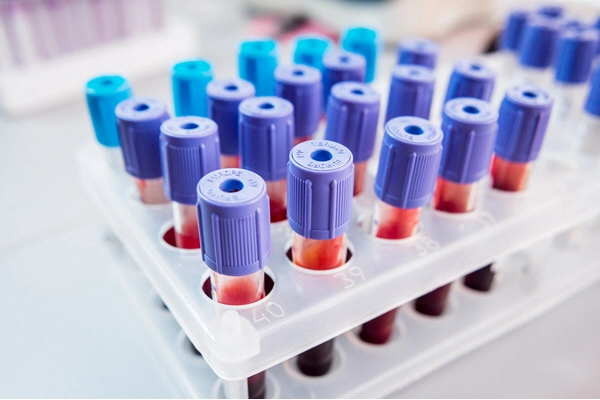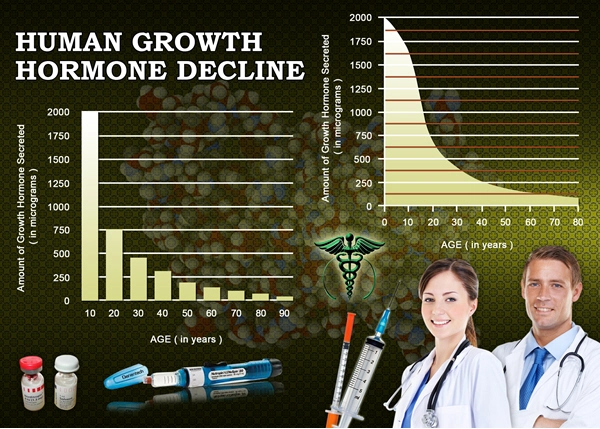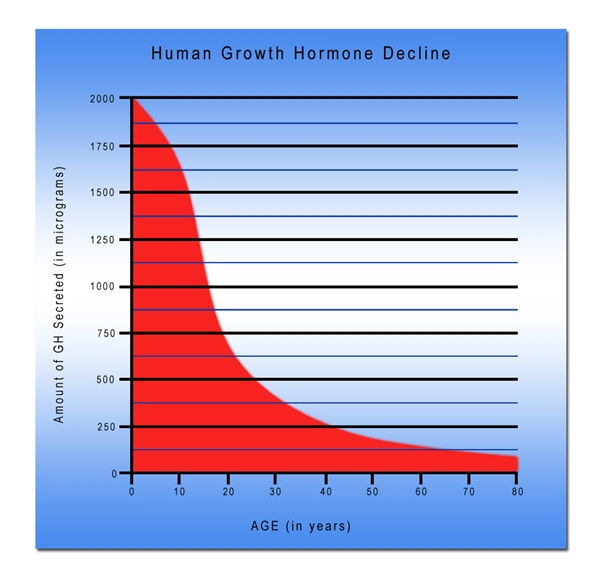Introduction to Urological Health
Urological health encompasses the well-being of the urinary system and male reproductive organs. For American males, maintaining optimal urological health is crucial not only for quality of life but also for mitigating the risk of various cancers. This article delves into the intricate links between urological health and cancer, providing essential insights for men across the United States.
The Prevalence of Urological Cancers
Urological cancers, including prostate, bladder, and kidney cancers, are among the most common cancers affecting American men. Prostate cancer, in particular, stands as the second most common cancer among men in the U.S., with a significant impact on public health. Understanding the factors that contribute to these cancers is vital for early detection and effective management.
Risk Factors and Urological Health
Several risk factors are associated with urological cancers, many of which are intertwined with overall urological health. Age is a primary risk factor, with the incidence of prostate cancer increasing dramatically after the age of 50. Genetic predispositions also play a role, as men with a family history of urological cancers are at a higher risk.
Lifestyle factors such as smoking, diet, and exposure to certain chemicals can adversely affect urological health and increase cancer risk. For instance, smoking is a well-established risk factor for bladder cancer, while diets high in red meat and low in fruits and vegetables may contribute to prostate cancer risk.
The Importance of Regular Screening
Regular screening is a cornerstone of maintaining urological health and detecting cancer early. The American Cancer Society recommends that men discuss prostate cancer screening with their healthcare provider starting at age 50, or earlier if they are at higher risk. Similarly, screening for bladder and kidney cancers may be warranted based on individual risk factors and symptoms.
Symptoms and Early Detection
Awareness of symptoms related to urological health can lead to early detection of cancer. Common symptoms include changes in urinary habits, such as increased frequency or urgency, blood in the urine, and pain during urination. For prostate cancer, symptoms may also include difficulty starting or stopping the urine stream and a feeling of incomplete bladder emptying.
Men experiencing these symptoms should seek prompt medical evaluation. Early detection of urological cancers significantly improves the chances of successful treatment and recovery.
Preventive Measures and Lifestyle Modifications
Preventive measures and lifestyle modifications can play a pivotal role in maintaining urological health and reducing cancer risk. Quitting smoking is one of the most effective steps a man can take to lower his risk of bladder cancer. Adopting a balanced diet rich in fruits, vegetables, and whole grains, while limiting red meat and processed foods, can also contribute to better urological health.
Regular physical activity and maintaining a healthy weight are additional factors that can positively influence urological health. Furthermore, staying hydrated and avoiding exposure to harmful chemicals in the workplace or environment can help protect the urinary system.
The Role of Medical Professionals
Medical professionals, including urologists and primary care physicians, are essential allies in the journey toward optimal urological health. Regular check-ups and open communication with healthcare providers can facilitate early detection and management of urological issues. Men should feel empowered to discuss any concerns or symptoms with their doctors, ensuring a proactive approach to their health.
Conclusion: A Call to Action for American Males
Understanding the links between urological health and cancer is crucial for American males. By recognizing risk factors, staying vigilant about symptoms, and adopting a healthy lifestyle, men can take significant steps toward reducing their cancer risk and enhancing their overall well-being. Regular screening and collaboration with healthcare providers are key components of this proactive approach. As we continue to advance our knowledge and awareness of urological health, American males can look forward to a future with improved health outcomes and quality of life.

- Urological Health Guide: Conditions, Sexual Wellness, and Lifestyle Impact on American Men [Last Updated On: March 8th, 2025] [Originally Added On: March 8th, 2025]
- Modern Urology: Minimally Invasive, Advanced Diagnostics, Telemedicine for American Males [Last Updated On: March 18th, 2025] [Originally Added On: March 18th, 2025]
- Urological Conditions and Their Impact on Male Fertility: Diagnosis and Treatment [Last Updated On: March 18th, 2025] [Originally Added On: March 18th, 2025]
- Genetics and Urological Health: Insights for American Men's Well-being [Last Updated On: March 19th, 2025] [Originally Added On: March 19th, 2025]
- Preventing Urological Infections in American Males: Risks, Measures, and Health Strategies [Last Updated On: March 19th, 2025] [Originally Added On: March 19th, 2025]
- Exercise and Urological Health: A Comprehensive Guide for American Men [Last Updated On: March 20th, 2025] [Originally Added On: March 20th, 2025]
- Urological Health Strategies for American Men: Balancing Work and Wellness [Last Updated On: March 20th, 2025] [Originally Added On: March 20th, 2025]
- Urological Health Guide for American Men: Symptoms, Conditions, and Prevention [Last Updated On: March 21st, 2025] [Originally Added On: March 21st, 2025]
- Smoking's Impact on Urological Health in American Men: Risks and Cessation Benefits [Last Updated On: March 21st, 2025] [Originally Added On: March 21st, 2025]
- Hydration's Vital Role in Urological Health for American Males: Strategies and Benefits [Last Updated On: March 21st, 2025] [Originally Added On: March 21st, 2025]
- Supplements and Urological Health: Benefits and Considerations for American Men [Last Updated On: March 21st, 2025] [Originally Added On: March 21st, 2025]
- Managing Urological Pain in Men: Causes, Diagnosis, and Treatment Options [Last Updated On: March 22nd, 2025] [Originally Added On: March 22nd, 2025]
- Urological Health in American Men: Conditions, Mental Well-being, and Holistic Management [Last Updated On: March 23rd, 2025] [Originally Added On: March 23rd, 2025]
- Urological Rehabilitation: Enhancing Quality of Life for American Men [Last Updated On: March 23rd, 2025] [Originally Added On: March 23rd, 2025]
- Heart Health and Urological Function: Critical Connections for American Males [Last Updated On: March 23rd, 2025] [Originally Added On: March 23rd, 2025]
- Urological Health's Psychological Impact on American Males: A Holistic Approach [Last Updated On: March 23rd, 2025] [Originally Added On: March 23rd, 2025]
- Obesity's Impact on Urological Health in American Men: Risks and Management Strategies [Last Updated On: March 23rd, 2025] [Originally Added On: March 23rd, 2025]
- Urological Surgery Recovery Guide for U.S. Males: Tips and Strategies [Last Updated On: March 23rd, 2025] [Originally Added On: March 23rd, 2025]
- Technological Advances Revolutionizing Urological Diagnosis for American Males [Last Updated On: March 23rd, 2025] [Originally Added On: March 23rd, 2025]
- Urological Education: Empowering American Males for Better Health Outcomes [Last Updated On: March 23rd, 2025] [Originally Added On: March 23rd, 2025]
- Veterans' Urological Care: Specialized Services and Innovative Treatments by VHA [Last Updated On: March 23rd, 2025] [Originally Added On: March 23rd, 2025]
- Urological Health Strategies for American Men Over 50 [Last Updated On: March 23rd, 2025] [Originally Added On: March 23rd, 2025]
- Medications' Impact on Urological Health: Insights for American Men [Last Updated On: March 24th, 2025] [Originally Added On: March 24th, 2025]
- Urological Health: Vital Screening for Young American Males' Well-being [Last Updated On: March 24th, 2025] [Originally Added On: March 24th, 2025]
- Essential Urological Procedures for American Males: A Comprehensive Guide [Last Updated On: March 24th, 2025] [Originally Added On: March 24th, 2025]
- Urological Health and Fertility: A Guide for American Males Planning Families [Last Updated On: March 24th, 2025] [Originally Added On: March 24th, 2025]
- Urological Health and Mental Well-being: A Holistic Approach for American Men [Last Updated On: March 24th, 2025] [Originally Added On: March 24th, 2025]
- Urological Health in Sports: Risks, Prevention, and Nutrition for Athletes [Last Updated On: March 25th, 2025] [Originally Added On: March 25th, 2025]
- Stress Impact on Urological Health in American Males: Prostate, Sexual, and Urinary Effects [Last Updated On: March 25th, 2025] [Originally Added On: March 25th, 2025]
- Urological Health: Vital for American Men's Longevity and Quality of Life [Last Updated On: March 25th, 2025] [Originally Added On: March 25th, 2025]
- Urological Health and Sleep Quality: A Vital Connection for American Men [Last Updated On: March 25th, 2025] [Originally Added On: March 25th, 2025]
- Urological Health Management Tips for American Men Traveling [Last Updated On: March 25th, 2025] [Originally Added On: March 25th, 2025]
- Urological Health and Insurance: Navigating Coverage for Men's Well-being [Last Updated On: March 26th, 2025] [Originally Added On: March 26th, 2025]
- Urological Health: Impact and Management for American Men's Quality of Life [Last Updated On: March 26th, 2025] [Originally Added On: March 26th, 2025]
- Urological Health: Vital for American Men's Wellness and Quality of Life [Last Updated On: March 26th, 2025] [Originally Added On: March 26th, 2025]
- Debunking Urological Myths: Empowering American Men with Health Facts [Last Updated On: March 26th, 2025] [Originally Added On: March 26th, 2025]
- Managing Urological Health in Men: Chronic Conditions and Strategies [Last Updated On: March 26th, 2025] [Originally Added On: March 26th, 2025]
- Dietary Guide for Urological Health in American Men: Nutrition and Hydration Focus [Last Updated On: March 27th, 2025] [Originally Added On: March 27th, 2025]
- Urological Health and Bone Density: A Vital Connection for American Males [Last Updated On: March 27th, 2025] [Originally Added On: March 27th, 2025]
- Alcohol's Impact on Urological Health: Risks and Mitigation Strategies for Men [Last Updated On: March 28th, 2025] [Originally Added On: March 28th, 2025]
- Urological Health's Impact on American Men's Social Lives and Management Strategies [Last Updated On: March 28th, 2025] [Originally Added On: March 28th, 2025]
- Environmental Impacts on Urological Health in American Males: Risks and Mitigation Strategies [Last Updated On: March 28th, 2025] [Originally Added On: March 28th, 2025]
- Urological Health Guide for American Males: Best Practices and Prevention [Last Updated On: March 28th, 2025] [Originally Added On: March 28th, 2025]
- Urological Health Essentials for American Men: Prevention, Screening, and Lifestyle [Last Updated On: March 28th, 2025] [Originally Added On: March 28th, 2025]
- Urological Health and Hearing Loss: A Critical Connection in American Males [Last Updated On: March 28th, 2025] [Originally Added On: March 28th, 2025]
- Exercise and Urological Health: Benefits, Safe Practices, and Specific Exercises for American Males [Last Updated On: March 28th, 2025] [Originally Added On: March 28th, 2025]
- Urological Health and Skin Care: A Vital Connection for American Males [Last Updated On: March 28th, 2025] [Originally Added On: March 28th, 2025]
- Urological Health and Immunity: Strategies for American Males [Last Updated On: March 29th, 2025] [Originally Added On: March 29th, 2025]
- Integrating Urological Health into Men's Campaigns: A Vital Step for American Males [Last Updated On: March 29th, 2025] [Originally Added On: March 29th, 2025]
- Urological Health Linked to Vision Problems in American Men: Importance of Screenings [Last Updated On: March 29th, 2025] [Originally Added On: March 29th, 2025]
- Urological Health Advocacy: Enhancing Men's Well-being in the U.S. [Last Updated On: March 29th, 2025] [Originally Added On: March 29th, 2025]
- Urological Health: Key to Men's Sexual Wellness in America [Last Updated On: March 29th, 2025] [Originally Added On: March 29th, 2025]
- Urological-Dental Health Link: Implications for American Men's Well-being [Last Updated On: April 1st, 2025] [Originally Added On: April 1st, 2025]
- Urological-Respiratory Health Link: Impacts and Management for American Males [Last Updated On: April 4th, 2025] [Originally Added On: April 4th, 2025]
- Urological Health: Vital for American Men's Wellness and Research Focus [Last Updated On: April 4th, 2025] [Originally Added On: April 4th, 2025]
- Urological Health in Men: Importance, Detection, and Lifestyle Impact in America [Last Updated On: April 5th, 2025] [Originally Added On: April 5th, 2025]
- Urological and Digestive Health: Vital Connections for American Males' Well-being [Last Updated On: April 6th, 2025] [Originally Added On: April 6th, 2025]
- Enhancing Urological Health Policy for American Men: Needs and Strategies [Last Updated On: April 7th, 2025] [Originally Added On: April 7th, 2025]
- Urological Health and Neurological Impact in American Males: A Comprehensive Overview [Last Updated On: April 9th, 2025] [Originally Added On: April 9th, 2025]
- Urological Health's Impact on American Men's Careers: Strategies for Management [Last Updated On: April 9th, 2025] [Originally Added On: April 9th, 2025]
- Urological Health's Impact on Men's Family Life in the U.S.: Challenges and Support [Last Updated On: April 10th, 2025] [Originally Added On: April 10th, 2025]
- Urological Health and Endocrine System: Vital Connections for Men's Well-being [Last Updated On: April 10th, 2025] [Originally Added On: April 10th, 2025]
- Urological and Cardiovascular Health: Vital Connections and Preventive Strategies for American Males [Last Updated On: April 10th, 2025] [Originally Added On: April 10th, 2025]
- Urological Health in Men: Importance, Detection, and Integration into Wellness Programs [Last Updated On: April 11th, 2025] [Originally Added On: April 11th, 2025]
- Urological and Musculoskeletal Health Link in American Men: A Holistic Approach [Last Updated On: April 11th, 2025] [Originally Added On: April 11th, 2025]
- Urological Health: Vital for American Men's Wellness and Longevity [Last Updated On: April 13th, 2025] [Originally Added On: April 13th, 2025]
- Urological Health's Impact on American Men's Community Involvement and Engagement [Last Updated On: April 14th, 2025] [Originally Added On: April 14th, 2025]
- Urological Health and Immune System: Strategies for American Males [Last Updated On: April 15th, 2025] [Originally Added On: April 15th, 2025]
- Urological Health's Impact on Men's Reproductive Well-being and Fertility [Last Updated On: April 15th, 2025] [Originally Added On: April 15th, 2025]
- Urological Health and Mental Well-being: A Holistic Approach for American Males [Last Updated On: April 15th, 2025] [Originally Added On: April 15th, 2025]
- Urological Health and Emotional Well-being: A Comprehensive Guide for American Men [Last Updated On: April 16th, 2025] [Originally Added On: April 16th, 2025]
- Urological Health: Vital for American Men's Overall Well-being and Quality of Life [Last Updated On: April 16th, 2025] [Originally Added On: April 16th, 2025]
- Urological Health: Vital for American Men's Well-being and Advocacy [Last Updated On: April 16th, 2025] [Originally Added On: April 16th, 2025]
- Urological Health's Impact on American Males' Physical Well-being: A Comprehensive Overview [Last Updated On: April 17th, 2025] [Originally Added On: April 17th, 2025]
- Urological Health's Impact on American Men's Social Well-being: Strategies and Insights [Last Updated On: April 18th, 2025] [Originally Added On: April 18th, 2025]
- Urological Health: Vital for Men's Well-being and Prevention Strategies [Last Updated On: April 19th, 2025] [Originally Added On: April 19th, 2025]
- Urological Health in American Men: Education, Early Detection, and Stigma Reduction [Last Updated On: April 19th, 2025] [Originally Added On: April 19th, 2025]



List of USA state clinics - click a flag below for blood testing clinics.
Word Count: 633



















































